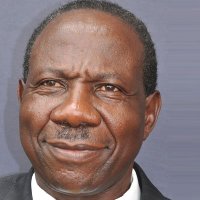Survey shows many Ugandans not happy with economy
June 13, 2018—Finance minister, Matia Kasaija, is reading the National Budget on Thursday against the backdrop of a recent survey that shows most Ugandans are dissatisfied with the state of the economy with five out of six citizens unhappy with the way the government is managing things.
The findings were made by an NGO, Twaweza (we can make it happen), in its latest ‘Sauti za Wananchi’ survey. This is a nationally-representative, high-frequency mobile phone panel study, that showed 84 pc of the population is dissatisfied with the country’s economic management. Some 13 pc of the population said they are completely or somewhat satisfied while 3 percent did not know.
In contrast, last week, President Yoweri Museveni said in the State of the Nation address, the Ugandan economy was on course. Museveni said the economy was growing at the right pace and highlighted a prediction by the Harvard Centre for International Development, that recently predicted that Uganda will be one of the fastest growing economies in the world by 2026. He said, “Many people do not know how the economy grows, although many pass themselves out as ‘experts’.”
Twaweza said data was collected from 1,925 respondents in the first round of calls to the Sauti za Wananchi panel, conducted between 6 and 13 October, 2017. Twaweza says it works to provide practical information to everyone, to foster quality independent media and citizen monitoring services.
According to the World Bank Group, after growing at 4 percent in financial year (FY) 2016/17, preliminary data suggests that real GDP in Uganda has risen 7.1 pc during the first half of FY 2017/18, compared to the same period in FY 2016/17.
Real output only grew 2.4 percent in the first half of FY 2016/17, when the economy was plagued by adverse weather conditions and pests such as the army worm. The recent growth recovery is largely driven by a double-digit increase in ICT services, strong food crops production, and the robust growth performance of the manufacturing
sector.
On the other hand, the Sauti survey showed there were also high levels of dissatisfaction with the country’s trends on policies to tackle corruption (80 pc) and unemployment (71 pc). However, the report indicated that a majority (62 pc) are satisfied with the government’s progress on improving security.
During the survey it was also found that half of citizens had gone without food for a day in the past three months. ‘One out of two citizens (49 pc) have, in the three months before the survey, gone a whole day without eating due to a lack of money or other resources’, the survey results read in part.
Even larger numbers have experienced difficulties with food security over the same period. Five out of six (85 pc) have been worried that they would run out of food, and three out of four (75 pc) had to skip a meal. Within the last three years, Uganda’s poverty rate has been creeping up, now at about 20% following steady falls due to adverse weather conditions that hurt agricultural production. A reversal is only happening within the past year.


 African Heads of state head to South Korea next week for Summit talks
African Heads of state head to South Korea next week for Summit talks
 Trading leads as main source of income for Ugandans
Trading leads as main source of income for Ugandans
 New leadership for bankers’ umbrella as total assets top $12 billion
New leadership for bankers’ umbrella as total assets top $12 billion
 Brussels Airlines to announce Nairobi service
Brussels Airlines to announce Nairobi service
 SITA promises enhanced travel experience after Materna acquisition
SITA promises enhanced travel experience after Materna acquisition
 Saudia’s 105 aircraft order stretches A320neo lead over rival Max
Saudia’s 105 aircraft order stretches A320neo lead over rival Max
